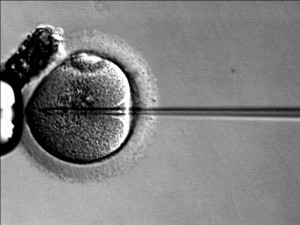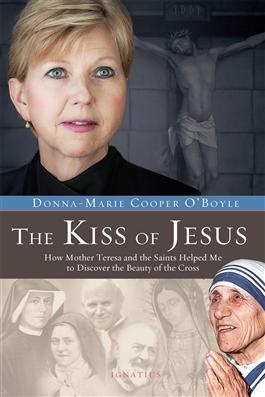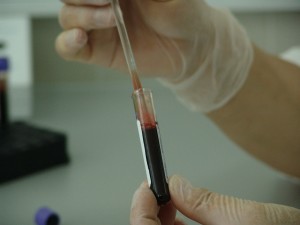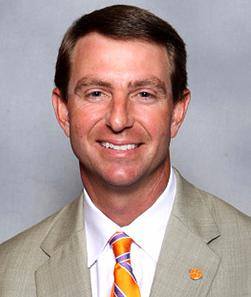
What if you go to buy a baby and there’s a some kind of parentage mix-up, or the seller lies to you about whose child this really is?
That’s just one of the avoidable crises that are spawned by a culture in which human life is a commodity, to be bought and sold, brought into existence or extinguished at will.
Wesley Smith, special consultant to the Center for Bioethics and Culture, has a truly disheartening article over on LifeNews.com about a lesbian couple in Canada who bought sperm for artificial insemination, then later discovered that the father was not who they thought he was. Not a brilliant scientist, as they’d been told, but a schizophrenic criminal–with a mole! Oh horrors!
Smith quotes an article about the ensuing lawsuit from the Atlanta Journal:
Collins and Hanson, according to the suit, were told that their then-anonymous donor had an IQ of 160, a bachelor of science degree in neuroscience and a master’s degree in artificial intelligence, and that he was working on his PhD in neuroscience engineering. He also was described as an eloquent speaker, mature beyond his years, and healthy.
Collins, via intra-uterine insemination, gave birth to a son on July 19, 2007…
The couple and other families who had used him as a donor quickly discovered through their own research that he is, according to the suit, schizophrenic, had dropped out of college and had been arrested for burglary, and that his pictures had been doctored to remove a large mole from his cheek.
The Atlanta Journal reports:
According to the suit, if Collins and Hanson had known their donor’s history earlier, they would not have purchased his sperm from Xytex.
Nancy Hersh, a lawyer for the couple, said they love their son but want to make sure he can be properly cared for if he is diagnosed as having schizophrenia.
Collins and Hanson say in the suit that they have suffered emotional and financial damages and they now will have to spend more money to evaluate and care for their son to make certain that he receives any medical treatment and care he may require in the future. They are suing for fraud, negligent misrepresentation, breach of warranty, battery and unfair business practices.
The lesbian mamas insist that they love their son–but they worry that they will need to spend more for testing and to make certain he receives proper care (if, in fact, he inherits his father’s schizophrenia).
But misrepresentation on the part of a sperm bank is only the tip of the iceberg with the new reproductive technologies. There’s the problem of masturbation–a sin in the eyes of the Church, since it separates the sexual act from its natural procreative and unitive purposes. There’s the matter of feticide, the intentional destruction of hundreds of unwanted children conceived in a petri dish. There’s the separation of procreation from the sexual act between a husband and wife, and the usurpation by science of the role of God in creation of new human beings. And just think of the emotional crisis for a child who learns that his parents have filed a “wrongful birth” lawsuit!
Boston attorney Ben Seisler sued Fairfax Cryobank in Virginia, after learning that sperm he’d donated had been widely distributed and he’d fathered at least 70 children. “They’re not my kids,” he said. “I don’t see them as my kids.” Well, that’s nice, Mr. Seisler, but they ARE your kids–and with so many offspring populating the gene pool in Virginia, there is a risk that those children will meet one another, fall in love and marry, and face a future in which their children will have increased risk of genetic mutations.
And in 2013, the Virginia Supreme Court ruled that sperm donors are legal fathers–opening the door to litigation regarding visitation rights (as in this case in New Jersey), child support (as in this Kansas ruling), and other thorny issues. Children of sperm donors have increasingly sought information about their natural parent, in order to learn more about potentially troubling genetic conditions.
Rev. Tadeusz Pacholczyk, Ph.D., director of education at the National Catholic Bioethics Center, says of sperm donation:
These practices point to a fundamental problem in the way we understand the gift of our human bodies. Our sex cells, or gametes, are special cells. They uniquely identify us. They are an intimate expression of our own bodily identity, and mark our human fruitfulness. Hence our own gametes exist in a discernible relationship to marriage. Each of us, in fact, has been given a capacity, a radical capacity, for total self-donation to a unique member of the opposite sex in marriage. Our gametes, and their exclusive availability to our spouse through marital acts, are an important sign of this radical capacity for self-donation. They uniquely denote who we are, and manifest the beautiful and life-engendering possibility of giving ourselves away to the one person whom we singularly love as our husband or wife. Hence, donating to sperm or egg banks violates something fundamental at the core of our own humanity. It dissociates us from the deeper meaning of our own bodies and gravely damages the inner order of marriage.
Cardinal Joseph Ratzinger, the future Pope Benedict XVI, while serving as Prefect of the Congregation for the Doctrine of the Faith, wrote in Donum Vitae (On the Gift of Life):
Recourse to the gametes of a third person, in order to have sperm or ovum available, constitutes a violation of the reciprocal commitment of the spouses and a grave lack in regard to that essential property of marriage which is its unity…. Masturbation, through which the sperm is normally obtained, is another sign of this dissociation: even when it is done for the purpose of procreation, the act remains deprived of its unitive meaning: “It lacks the sexual relationship called for by the moral order…”
Wesley Smith wraps it up with a reiteration of the famed quote by Sir Walter Scott, from his classic Marmion:
Oh what a tangled web we weave, when choosing to eugenically conceive.















